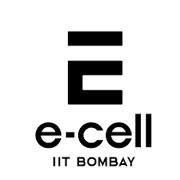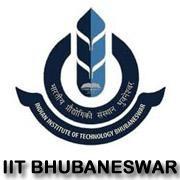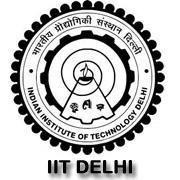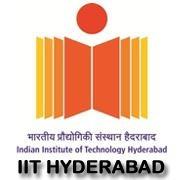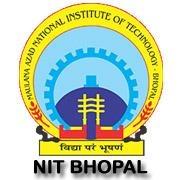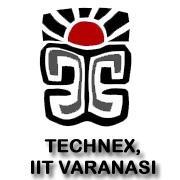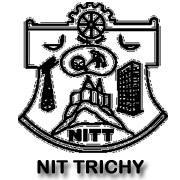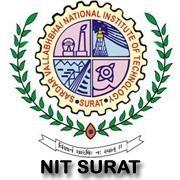



Blockchain Technology is mainly evolved from a perspective of decentralized financial system and promoting the cashless economy. The digital ledger where the transactions made in Bitcoin or else another cryptocurrency that are recorded publicly and chronologically. This technology has radically improved supply chain and other transactions network.
Why Blockchain?
The blockchain is considered as the network of computers or else devices which is open to anyone of all which must approve a transaction that has taken place before the recorded in a “chain” of computer code. It is completely about Digital finance which is about saving, depositing and transferring money, accessing credit and insurance and performing digital channels through online banking, mobile phones, cards, computers, tablets etc. There are incredible career opportunities for the all the certified Blockchain Developers to make a career in top notch companies.
As per the reports, the Blockchain Technology market is segmented in various fields such as
Topics to Be Covered
Day 1
Introduction to Blockchain
Introduction to Blockchain, The technology of Blockchain, network and mechanism, history of blockchain, the benefits of Blockchain, blocks and transactions, Peer to Peer systems, the block structure in blockchain, what is Dynamic shared ledger, digital signatures, how to build a blockchain solution, hashes as addresses, using a key as identity, ways of storing Bitcoin Keys, Trade and transact with Bitcoins, Global Blockchain Ecosystem Core, Layers Of A Blockchain, Data Layer, Network Layer, Consensus Layer.
Detailed study of Blockchain
Understanding what is bitcoin, the network of bitcoins, how to mine a bitcoin, the various bitcoin wallets, what are the alternative blockchains available, what is a smart contract, what is a public network and a private consortium, Ethereum Virtual Machine, the Merkle Tree, the Ethereum environment, DApps, Decentralized Autonomous Organizations (DAO), the problem of double-spend, how blockchain impacts cryptocurrencies, Mechanics Of Bitcoin, Transcriptions, Scripts, Blocks, Peer-to-peer network, Security Measures.
Day -2
Blockchain and Bitcoin
Identify Bitcoin and its Era Understand Where & How to Get Bitcoins Identify Bitcoin Wallets Identify Jaxx Wallet Define Selling Bitcoins Compare Bitcoin Blockchain, Transaction & Transaction Script Describe Various Transaction Forms in Bitcoin, Define Scripts in Bitcoin, List Nodes in Bitcoin Network.
Bitcoin Mining
Understand Economics of Bitcoin Define Bitcoin Mining Describe Fabrication of a Block Header Define Mining Identify Successful Mining List Difficulties in Solo Mining Understand Mining: By pool of Miners, Mining and consensus, autonomous verification of mining, independent verification of mining, checklist for verification of mining, combining transactions into blocks, combination of verified transactions, combining transactions into blocks, portrayal of difficulty, condition of difficulty, creation of block header, main chain, orphan block, creation of new block, independent validation of new block, the race for bitcoin mining and hash race, difficulty rising with the hashing power of the miners, solo mining, difficulty of solo mining, benefits of pooled mining, types of mining pools.
Day -3
Ethereum and working with Smart Contracts
Understand Ethereum, Define Smart Contracts, Identify Cryptocurrency used in Ethereum, Describe Transactions in Ethereum, Define Consensus Mechanism in Ethereum, List Development Technologies, Identify Ethereum Clients, Define Platform Functions, Understand Solidity, Describe Solidity Operators and Functions, setting up Metamask, how to interface with ethereum network, first smart contract, Ethereum accounts and how to receive ether, structuring a contract, declaring a function, deploying and redeploying of a contract, comparing Wei & Ether, what is a gas transaction, Remix testing.
Setting up a private Blockchain environment
Understand Creating Smart Contracts on Ethereum, Remix Browser Define MetaMask, Describe Installing Blockchain, Perform Go lang Installation, Explain Creating Blockchain – Genesis Block List Genesis.json File Parameters, Explain Making rules for our Blockchain, Perform Mining Blockchain, Contract Deployment for Blockchain Environment, Boilerplate Requirements, Project File Walkthrough, Syntax Highlighters, Compiling Solidity, The Compile Script, Testing Architecture, Running Windows, Installing Modules, Web3 Versioning, Web3 Providers, Refactor to Async/Await, Deployment with Web3, Web3 Version Fix, Verifying the Initial Message, Testing Message Updates, Deployed Contracts in Remix, Complete Example: Crowd Funding Smart Contract, Complete Example: Voting Ballot Smart Contract, Ethereum Application Architecture, Application Overview, Getting Started with Create-React-App, Multiple Web3 Instances, Web3 Setup.
Day - 4
Hyperledger
Define Hyperledger Blockchain, Understand Hyperledger Consensus Algorithm, Explain Hyperledger Iroha, Identify Hyperledger Components, Describe Setting up Channels, Policies, and Chaincodes List Hyperledger Explorer Components, Define Hyperledger Composer, Introduction to Hyperledger, What is Hyperledger?, Distributed Ledger Technology & its
Challenges, Hyperledger & Distributed Ledger Technology
Setting up the Hyperledger Fabric Developer Environment Tools, Linux/Ubuntu & AWS: Setup of Fabric Development on Local & Cloud VM, Mac OS: Setup of Fabric Development Environment, Windows : Fabric development environment setup, How to use the Dev Tools, Development Environment Topology, Fabric Under the Hood (Concepts & Terminology), Ledger Implementation, Dev Environment Walkthrough: Peer & CouchDB setup, Ledger Implementation, Peers Nodes : Anchors and Endorsers, Anchor Peers & Endorsing Peers, Clients Node: Endorsement Policies, Client Peer & Endorsing Policies, Orderer Nodes, Membership Service Provider & Certification Authority, Dev Environment Walkthrough: Orderer and CA Server, Chaincode Development.
Hyperledger Composer
What is hyperledger composer, benefits of hyperledger composer, conceptual components and structure, example business network car auction market, conceptual components and structures, the model, ACL, script file, metadata, the archive, open development toolset, modeling business networks, testing business networks, hyperledger composer playground, developing application using Hyperledger composer.
Day -5
Creating private Blockchain with Multichain
Define Multichain, Describe MultiChain Streams, Create & deploy private blockchain, Explain Connecting to a Blockchain, Identify Multichain Interactive Mode, List Native assets, Define Transaction Metadata, Explain Streams Explain Mining, Bitcoin to private blockchain, aim of multichain, hand-shake process, multi-chain use cases, multichain permission, multichain assets, multichain streams, basics of retrieving from streams, consensus model, multichain flexibility, deployment options, speed and scalability of multichain, downloading and installing multichain, initializing blockchain, connecting to blockchian, connecting from second server, permission for connection, multichain interactive mode, creating new address, connected peers, native assets, permission to create assets, new assets, verifying transactions, checking asset balance, resending assets, transaction metadata.
Blockchain Use Cases
Selected potential Use Cases in Blockchain, Proof of existence, Record keeping, Identity management, UPROOV – Mobile Trust Machine, Log operational maintenance data, Car leasing and Sales – DocuSign, Forecasting – Augur, Online music problem solution, Cloud storage, STORJ – Decentralized cloud storage, Retail – OpenBazaar, Ascribe – Secure your work, Ride sharing, supply chain management, Blockchain and IoT, Autonomous Decentralized Peer to Peer Telemetry, ADEPT, IBM Watson IoT, IOTA, Freight Transportation, Banking industry projects – Payments, KYC, Trading platform, Fraud reduction, Loan Management Process, Capital Market System, Government – Online Voting, Capital Markets, Real Estate, Devising Public Policy, Georgia – Blockchain Land Registry, Estonia – Identity management and e-voting, Delaware, USA – Smart contracts, Public Policy, Dubai – Digital passports.
Blockchain Projects
Project 1 : Securing the Supply Chain System
Industry – Logistics
Problem Statement – To see there are no loopholes or fraud occurrence between the manufacturer and the end consumer.
Topics : This project gives you hands-on experience in Blockchain technology as deployed for supply chain management. You will work on recording transaction every time the product changes hands. This project includes learning how blockchain is implemented in recording, tracking, assigning, and linking the supply chain tasks. Finally learn how blockchain is all set to become a universal supply chain operating system.
Highlights :
Project 2 : Auctioning of Rare Artifacts
Industry – Online Marketplace
Problem Statement – How to bring transparency, immutability and decentralization to online auctions
Topics : This blockchain project tells you how the distributed, immutable technology is deployed in the rare artifacts auctions domain. Blockchain creates a network of participants, records the type of asset that is being auctioned, its veracity and authenticity, monitoring the transactions, evaluating the bids and other such tasks.
Highlights :
Project 3 : Voting with Ethereum blockchain
Industry – Government
Problem Statement – To ensure there is no vote rigging in a democratic election and there is complete transparency.
Topics : This projects includes deploying the Ethereum blockchain for building a secure voting system to elect a democratic government. You will learn how the Ethereum blockchain ensures confidentiality. Some of the aspects of this project include learning how to secure and validate the voting process, understanding how blockchain overcomes vote rigging, guarantees immutability and more.
Highlights :
Duration: The duration of this workshop will be five consecutive days, with 6-7 hours session per day
Certification Policy:
Eligibility: There are no prerequisites. Anyone interested, can join this workshop.
